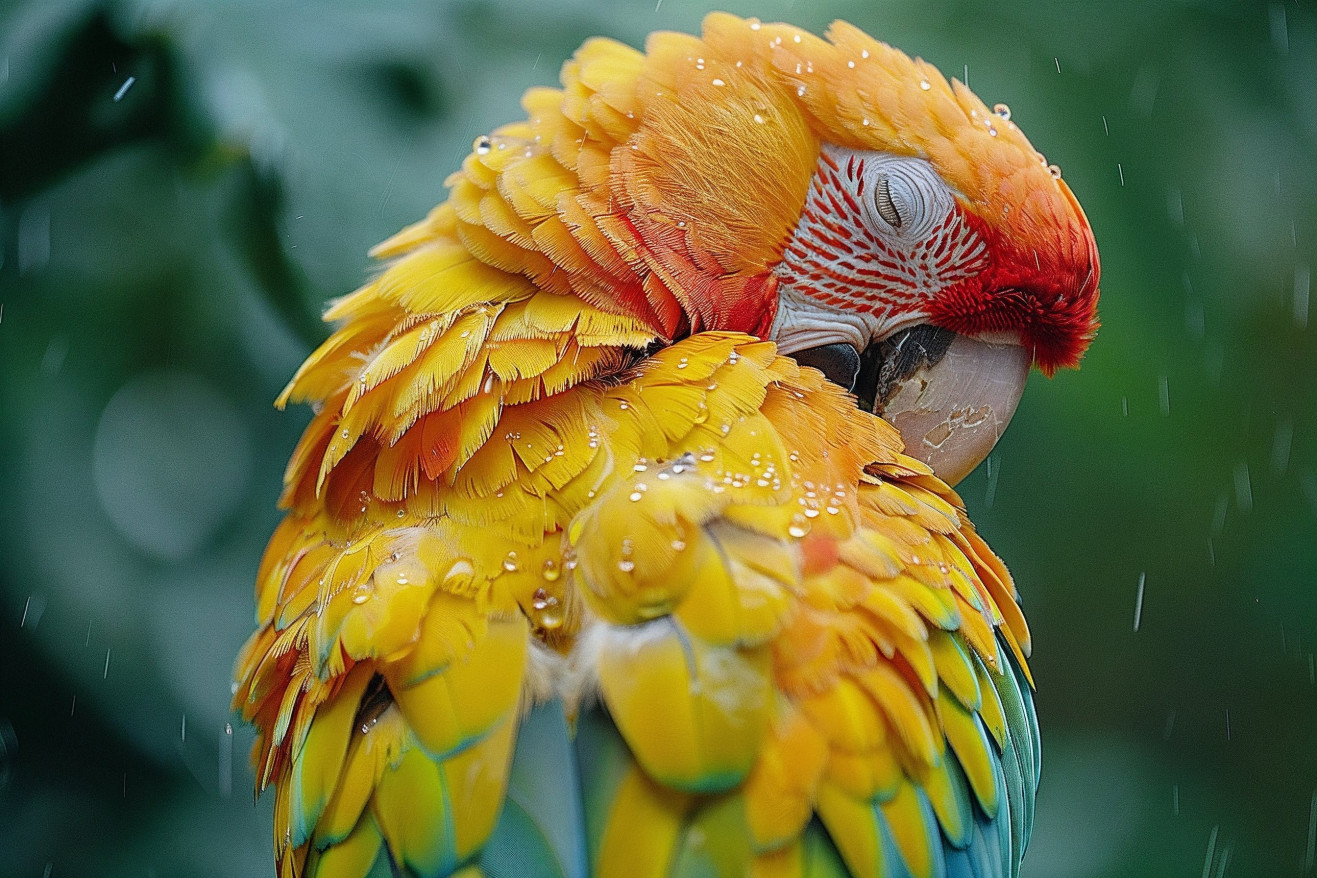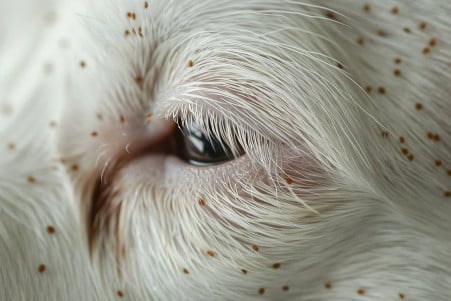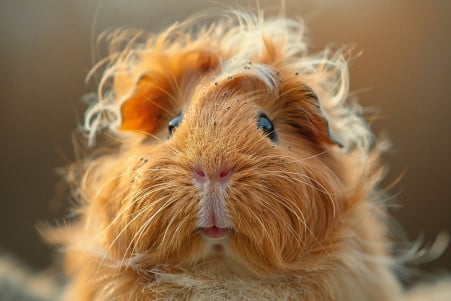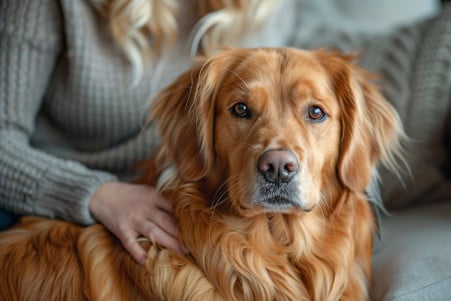Do Birds Have Fleas? Understanding Avian Parasite Risks
6 June 2024 • Updated 4 June 2024

Although birds may not be as likely to get fleas as other animals, they can still be affected by these irritating parasites, which can cause a variety of problems. Yes, birds can have fleas, and the majority of cases are caused by birds nesting in areas that were previously inhabited by mammals that carried fleas, such as rodents or pets. Symptoms of fleas in birds include itching, feather picking, and skin irritation around the vent area.
Our exploration will investigate the most recent research on the relationship between birds and fleas from the fields of ornithology, parasitology, and ecology. We will explore the flea species that affect birds, their life cycles, how they are transmitted, and how to prevent them in both backyard bird populations and commercial aviaries. By learning more about this lesser-known topic, you will better understand how to protect the health of our avian friends.
Do birds get fleas?
Types of Fleas and Their Life Cycles That Affect Birds
The chicken flea (Echidnophaga gallinacea), also known as the sticktight flea, is a common parasite of poultry and birds. However, it can also infest other animals like dogs and potentially humans, according to research referenced by BirdTipper. These fleas embed their heads into the skin of their hosts, causing irritation, discomfort, and potential secondary infections.
Knowledge of the flea's life cycle, which includes the egg, larva, pupa, and adult stages, is important for effective prevention and control. As noted by DTermiNation, environmental factors such as high population density and favorable conditions play a large role in the transmission of fleas within bird populations. Some birds have even developed special behaviors to help them deal with these pests, including dust-bathing and excessive preening to remove fleas from their feathers.
While fleas aren't known to directly spread diseases, a University of Florida study explains that severe infestations can lead to birds' eyes swelling shut, which can cause them to die from starvation or anemia due to excessive blood loss, especially in young birds. By learning about these hardy parasites' life cycles and how they're transmitted, bird owners can put in place specific measures to help protect their birds from the negative effects of fleas.
Health Risks and Diseases That Come With Flea Infestations
In addition to the general discomfort and annoyance that comes with flea infestations, there are also a number of health risks and diseases that birds can suffer from as a result of flea infestations. Birds that are infested with fleas may show signs of excessive scratching, feather loss, restlessness, and poor body condition, according to research by BirdTipper.
Fleas can also carry diseases such as typhus, which can cause fever and vomiting in people, and mycoplasma haemofelis, a bacterial disease that can cause anemia in cats and can also be transmitted to people, according to PetMD. In more extreme cases, the irritation, infection, and high numbers of fleas can cause the eyes of the bird to swell shut, which can lead to starvation or anemia due to blood loss, according to a University of Florida study. Young birds and birds with compromised immune systems may be especially susceptible to the negative impacts of flea infestations.
How to Prevent Flea Infestations in Birds
There are a number of things bird owners can do to prevent their pets from getting fleas. Terminix recommends that bird owners clean and vacuum their bird's living area, including their cage, perches, and nesting areas, regularly to get rid of flea eggs and larvae. WikiHow also suggests that bird owners give their pets dust baths and use natural flea repellents like diatomaceous earth to help birds get rid of fleas.
It's also important to make sure that any other pets in the home, like cats and dogs, are treated for fleas, as they can bring fleas into the bird's living area. Finally, the World Health Organization recommends that bird owners talk to an avian veterinarian to get advice on the best flea prevention products that are safe for birds. By following these tips, bird owners can make sure their pets are safe from fleas.
How to Get Rid of Fleas in Parakeets
If your parakeet has fleas, it is important to act quickly to ensure that the infestation does not become a serious health risk. ParakeetsCraving notes that the first step to getting rid of fleas in parakeets is to treat them with a flea product. The RSPCA explains that you should consult an avian vet to find out which flea treatment products are safe and effective for birds.
In addition to treating the bird, it is important to treat the bird's living environment, including the cage, perches, and any nesting areas, to kill flea eggs and larvae. DIY Pest Control explains that this can be done by cleaning and vacuuming the area and using insecticides or insect growth regulators (IGRs) to stop the flea life cycle. It is important to be patient and thorough, as it may take time to fully get rid of a flea infestation, and you may need to treat the area more than once.
Natural and Home Remedies for Flea Control
For bird owners who want to take a more natural or home remedy-based approach to flea control, there are a few options. Walkerville Vet notes that diatomaceous earth, which is a fine powder made from fossilized algae, can be used to dehydrate and kill fleas in the bird's environment. Meanwhile, essential oils like neem oil or cedar oil have been shown to have insecticidal properties and can be used in small amounts, although they are toxic if ingested.
In addition, regular bathing and grooming with a flea comb can help remove adult fleas from the bird's feathers and skin, as recommended by PetMD. Meanwhile, keeping the living space clean and well-ventilated and sealing off any potential entry points for fleas can also help prevent and control infestations, according to PetMD's tips for natural flea control for yards. By being proactive in these ways, bird owners can help make sure their birds stay healthy and happy in the long run.
Conclusion: Keeping Birds Healthy by Keeping Them Free of Fleas
Flea infestations in birds can cause significant discomfort, health problems, and even transmit diseases to other animals and humans. By understanding the life cycles and behavior of bird-specific flea species, bird owners can implement effective prevention and control measures. A multi-pronged approach, involving environmental control, treating other pets, and consulting with veterinarians, is often necessary to eliminate flea infestations successfully.
While chemical treatments may be recommended in some cases, natural and home-based remedies can also be effective when used correctly and with caution. Maintaining a clean, well-ventilated living space and being vigilant about potential flea sources can help ensure the long-term health and well-being of our feathered companions.


